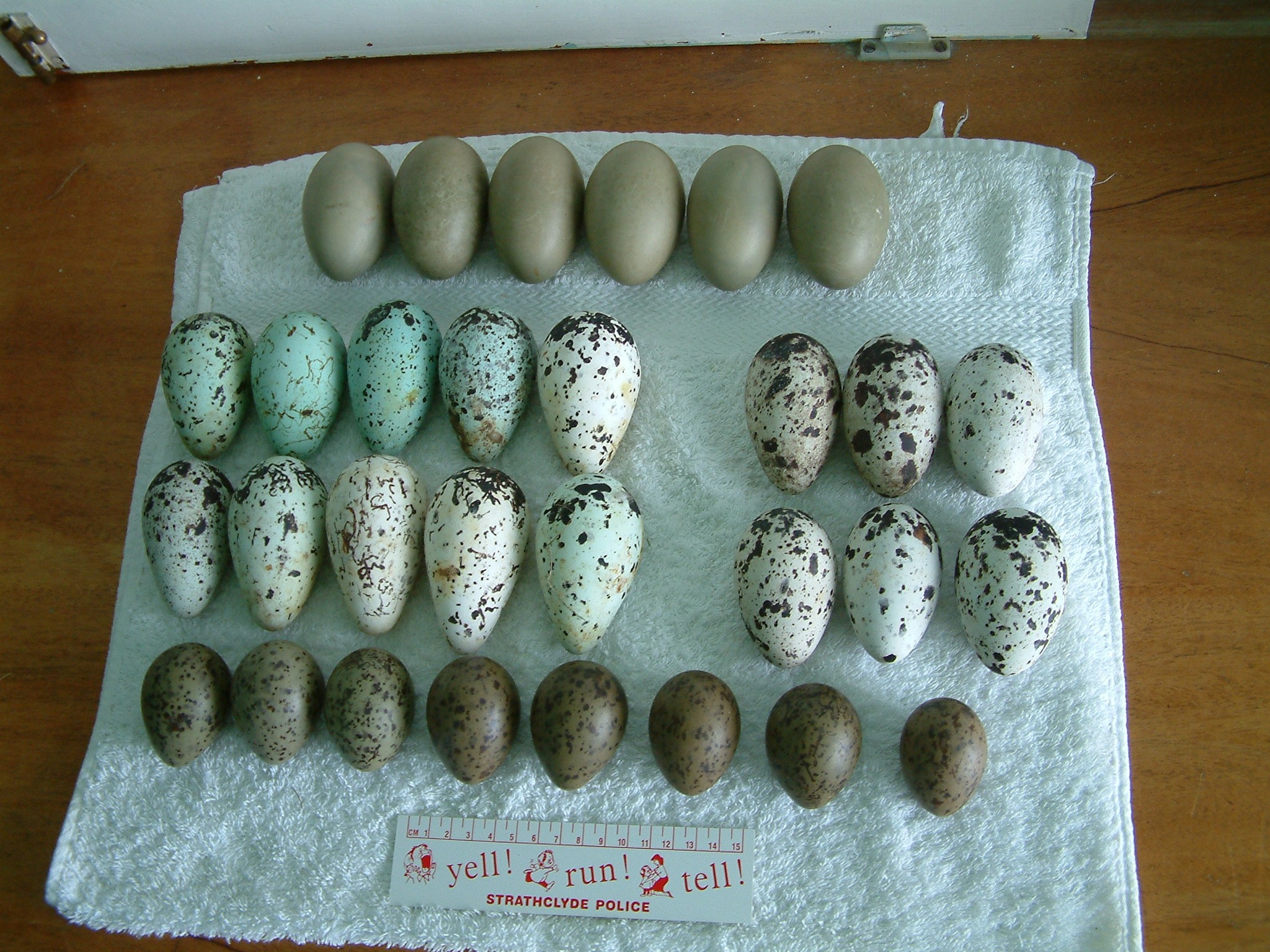
For most birdwatchers, simply seeing a new species is enough to make their day. Getting a photo of a rare or unusual bird is even better. But in years gone by, some individuals have allowed their fascination with birds to grow out of hand and into an immoral, bird-bothering hobby.
Egg collecting (sometimes confusingly referred to as egg poaching, although it has nothing to do with breakfast) is an obsessive ornithological pastime that involves illegally stealing the eggs of birds from their nests, blowing out their contents through a small hole to prevent them from rotting, and keeping the shells as collectible trophies.
Eggs from rare birds are the most valuable prizes to egg collectors, and they will go to great lengths to find them—climbing tall trees, venturing to remote locations and risking their lives to reach the nests of uncommon birds. In 2006, a 63-year-old British egg collector named Colin Watson fell to his death after attempting to climb a 40ft tree in search of eggs: proof that this hobby can be fatal for collectors as well as bird populations.
Watson had been convicted six times, and was considered Britain’s most notorious egg collector for two decades. But despite knowing more about birds than many of the UK’s foremost conservation experts, his passion for collecting eggs threatened the future of a number of the nation’s endangered species.
Eggs from the nests of golden eagles, ospreys and other legally protected birds were found in Watson’s 2,000 egg collection during a house raid in 1985. But while it was more common for such collections to be discovered in previous decades, wildlife law enforcers have recently seen a reduction in the number of people partaking in illegal egg collecting.
According to Sergeant Rob Taylor, Rural Crime Team Manager at North Wales Police, the pastime taken up by Watson and other men of his generation is finally becoming a thing of the past.
‘In my experience, it is decreasing considerably,’ says Taylor. ‘In years gone by it would be quite common during the nesting season to have reports of suspicious people, but this has decreased. In my last nine years of completing my role as force wildlife officer, we have only seized one considerable collection.’
‘We have run campaigns to ask people to hand in their collections as part of a “no prosecution amnesty”, but this has had nil return. I believe there are still old collections out there in peoples attics, as in many years gone by it was common practice to collect eggs. Not anymore.’
Taylor’s views are shared by representatives from the Royal Society for the Protection of Birds (RSPB), who have worked tirelessly with police forces over the years to catch egg collectors and prevent them from endangering more birds.
‘The peak time for bird egg collecting has been and gone,’ says Mark Thomas, senior investigations officer at the RSPB. ‘Activity has massively decreased, and we now see it as a low level crime, of very little conservation concern.’

There are a few possible reasons for the reduction in egg collecting. While it once played a role in increasing people’s understanding of natural science, we now have high quality cameras and other technology at our disposal to get a glimpse into the nesting habits of birds.
However, the most likely reason for egg collecting dying out is that modern generations are more likely to stay indoors playing with handheld gadgets than climbing trees. ‘My opinion is that this was a hobby for young boys before the days social media, computer games and mobile phones existed,’ reckons Taylor.
‘When I was in school 40-years-ago, it was often discussed in the classroom as a hobby. Now when I speak to younger children about it they look at me mystified. Times have changed considerably. The collectors that still exist are usually men from that far away era, now in their 40s and 50s.’
For Thomas, the decreased level of crime from egg collectors is a chance to focus on the larger and more threatening problem of illegal bird killing. ‘Unfortunately, around 95% of the crimes we investigate are to do with killing live birds, rather than collecting their eggs,’ he explains. ‘Whereas between 50 to 100 people would collect eggs a decade ago, nowadays it is just a handful of people.’
‘Overall egg collecting is not a big deal anymore. However, endangered bird poaching definitely is, and that’s what we’ll continue to focus our conservation efforts on.’
